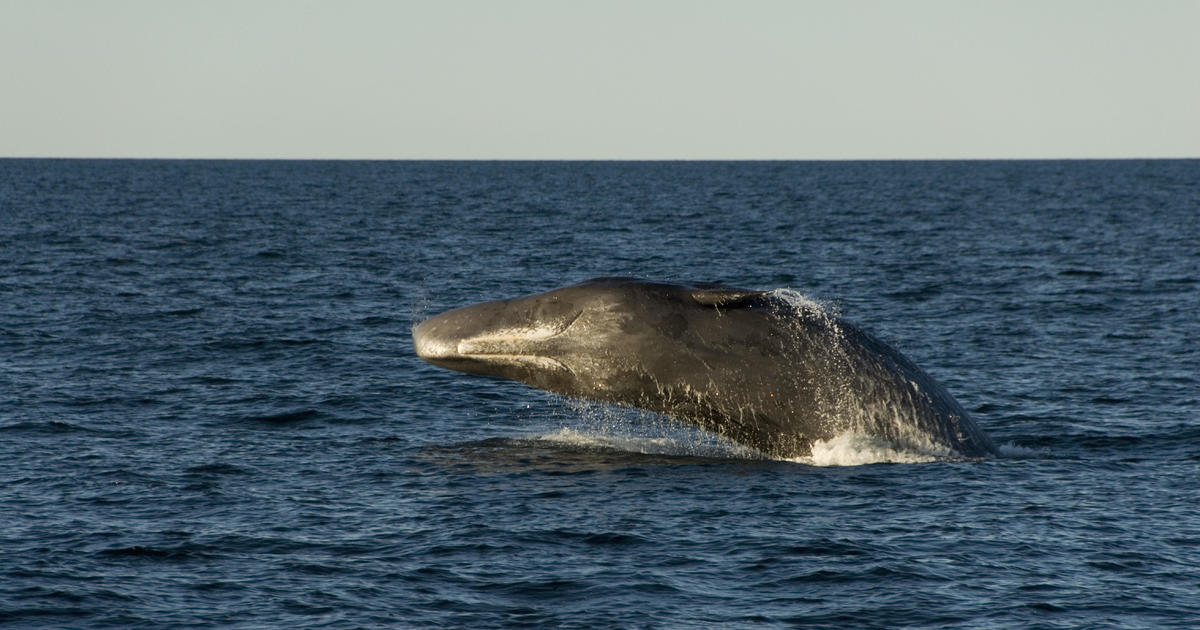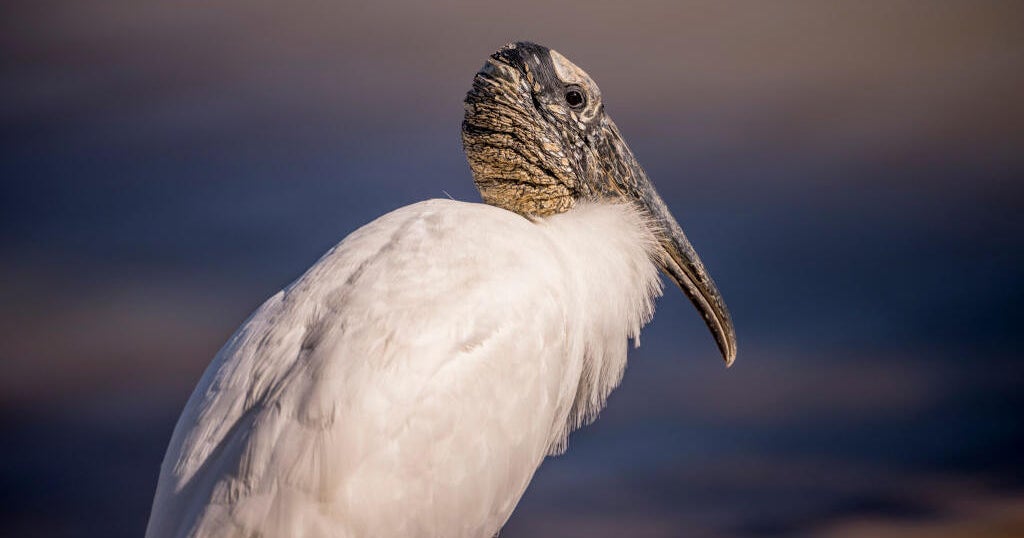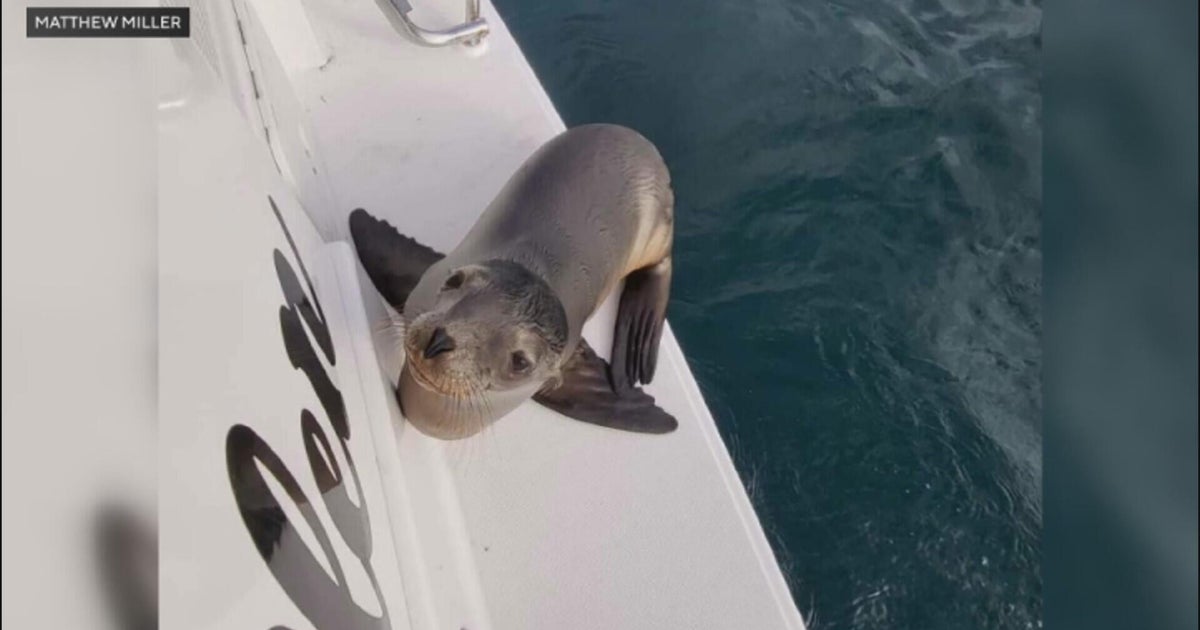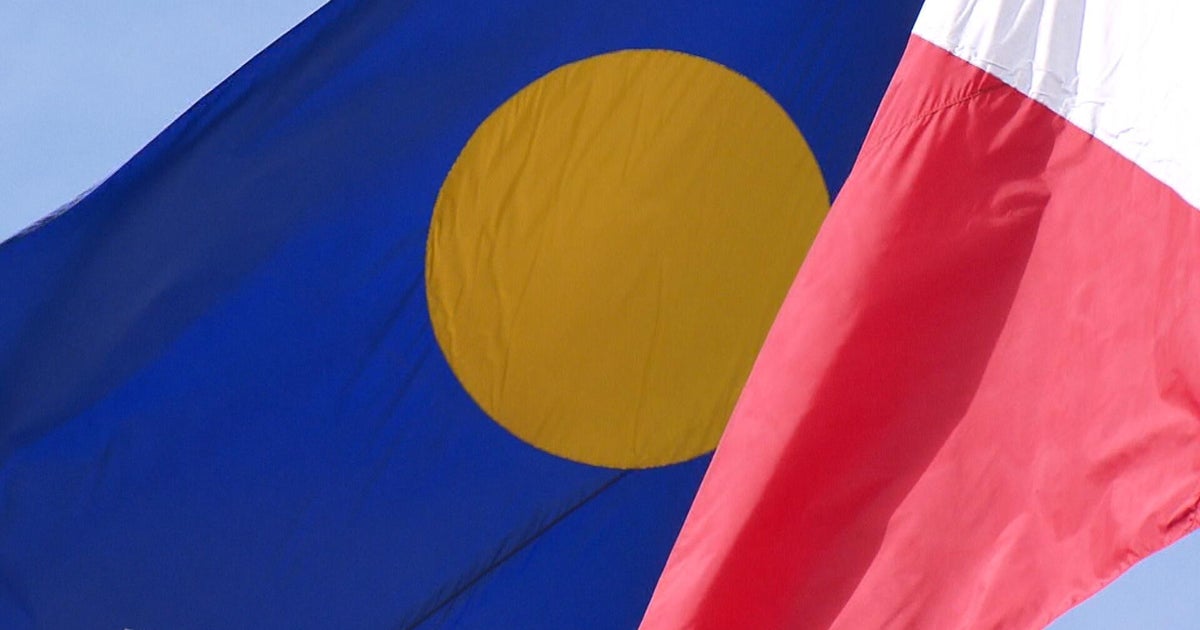Group Wants To End Protections For Seals To Deal With Cape Cod Sharks
BOSTON (AP/CBS) — A Massachusetts citizen's group is calling for eliminating federal protections for seals as Cape Cod officials seek ways to protect beachgoers from great white sharks.
Peter Howell, a founder of the Seal Action Committee, says the Nantucket-based group wants Congress to amend the federal Marine Mammal Protection Act so that seals and other species can be removed from the law's list of protected animals if their populations have sufficiently rebounded.
"We're not anti-seal. We're not trying to eliminate them. We're just trying to manage them in the interest of the larger ecosystem," he said Wednesday as the group spoke before the Barnstable County Commissioners, which oversees Cape Cod's regional government. "It's inconsistent to protect a species in perpetuity without regard to population size."
The call comes as the region's seal population — estimated in the hundreds of thousands — has been blamed for drawing droves of great white sharks in recent years. Seals are the favored meal for the powerful predators.
Cape Cod had two shark attacks on humans last summer, including the state's first fatal one in more than 80 years.
But amending the federal law could be a longshot since the idea doesn't appear to have strong support among members of Cape Cod's congressional delegation, said Commission Chair Ronald Bergstrom.
Democratic Rep. Bill Keating, who represents Cape Cod, said delisting seals from the protection act wouldn't change things.
"My staff and I have spoken with some of the top scientists in the nation about this matter, and they have told us that culling seals in this region is not effective in controlling these populations because they would be immediately repopulated by the migration of gray seals from Canada," he said in a statement.
The Marine Mammal Commission and the National Oceanic and Atmospheric Administration, which oversee management of seal and sea lion populations, also didn't respond to emails seeking comment.
The Marine Mammal Protection Act also already allows states to assume the responsibility for conservation and management of a species once it reaches its "optimum sustainable population," said Sharon Young, the marine issues field director for the Humane Society of the United States.
States like Washington have taken advantage of that provision to reduce their sea lion populations, but addressing Cape Cod's seals could be more challenging, she said.
"It's a fairly large population" of nearly 300,000 seals that "go back and forth between Canada and the U.S.," Young said. "So the 10,000 that are on a specific beach today are not the same 10,000 that might be there tomorrow."
Bergstrom said local officials should be focused on practical solutions that can be rolled out sooner than later.
Greg Skomal, a shark biologist at Mass Marine Fisheries, tagged four great whites Tuesday alone, bringing the total to 12 so far this season, in what he's calling a "banner year" because they haven't tagged so many, so early in the summer.
The commission also heard Wednesday from a Boston company offering a free, three-month pilot of an outdoor speaker system officials can use to order people out of the waters in the event a shark is spotted.
Prior to the start of this beach season, Cape Cod towns invested in emergency call boxes, improved beach medical kits and other equipment to improve their response in the event of another attack.
(© Copyright 2019 CBS Broadcasting Inc. All Rights Reserved. The Associated Press contributed to this report.)










